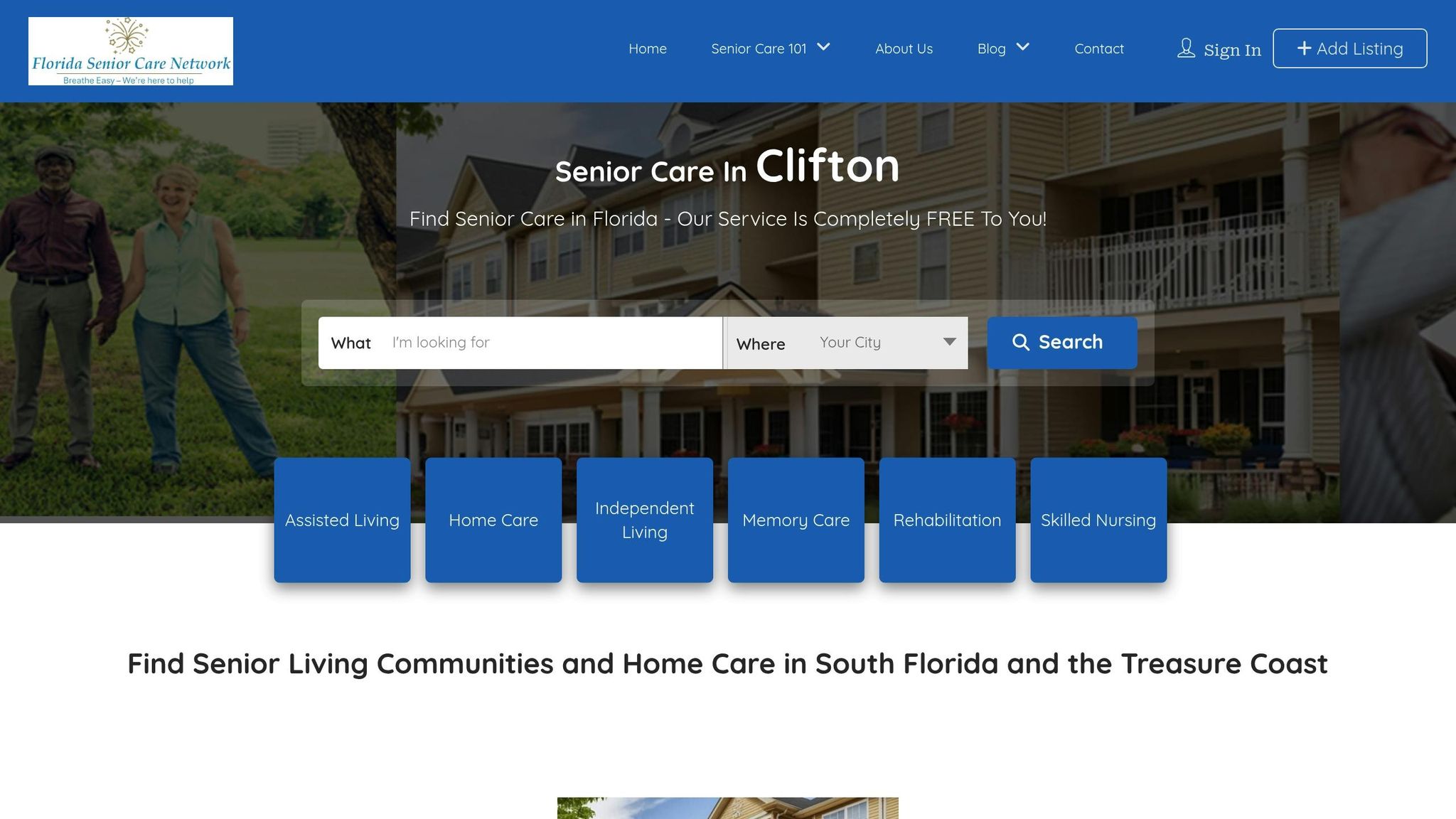Deciding between home care and assisted living can be overwhelming. Here’s a quick breakdown to help you choose the best option for your loved one:
Key Differences:
- Home Care: Personalized care in the comfort of your home. Flexible hours, one-on-one attention, and tailored support for medical needs. Costs average $30/hour or about $4,800/month (40 hours/week).
- Assisted Living: Community living with 24/7 staff, meals, activities, and medical support. Costs average $4,750/month in Florida, with additional fees for memory care.
Quick Comparison:
| Feature | Home Care | Assisted Living |
|---|---|---|
| Care Setting | Private home | Community facility |
| Care Schedule | Flexible hours | 24/7 on-site staff |
| Social Opportunities | Limited, one-on-one interaction | Group activities and events |
| Cost Structure | Hourly; ~$4,800/month (40 hrs/week) | Flat rate; ~$4,750/month |
| Medical Support | Personalized nursing care | Basic health monitoring |
Summary:
Choose home care for personalized, flexible support at home. Opt for assisted living for a structured, social environment with round-the-clock care. Assess current and future needs, including medical requirements, budget, and social preferences, to make the best decision.
Home Care vs Assisted Living: Main Differences
Home Care Services
Home care provides tailored support directly in a senior’s home. Services include:
- Help with daily tasks like bathing and dressing
- Medication reminders and management
- Nursing care for specific needs, such as wound care or IV therapy
- Meal preparation that considers dietary requirements
- Light housekeeping and laundry
Care can range from a few hours a day to round-the-clock, depending on the individual’s needs.
Assisted Living Services
Assisted living combines residential living with structured care in a community setting. Services include:
- Private or apartment-style living spaces
- Three daily meals served in shared dining areas
- 24/7 security and emergency response systems
- Scheduled transportation for appointments or errands
- Recreational and social activities
- Housekeeping and general maintenance
- Help with personal care
- Medication management
Shared spaces like libraries, activity rooms, and dining areas encourage social connections and a sense of community.
Side-by-Side Comparison
Here’s a breakdown of the main differences between home care and assisted living:
| Feature | Home Care | Assisted Living |
|---|---|---|
| Care Setting | Private residence | Community facility |
| Care Schedule | Flexible hours as needed | 24/7 on-site staff |
| Living Environment | Familiar home setting | Apartment-style accommodations |
| Social Opportunities | One-on-one caregiver interaction | Group activities and events |
| Medical Support | Personalized nursing care | Basic health monitoring |
| Cost Structure | $30/hour (national median) | $4,995/month (national median) |
| Meal Services | Custom-prepared meals | Three daily prepared meals |
| Independence Level | Maximum autonomy | Structured independence |
| Staff Attention | One-on-one focused care | Shared staff resources |
Choosing between home care and assisted living depends on factors like independence, social preferences, and medical needs. Home care provides personalized, one-on-one attention in a familiar setting, while assisted living offers a community atmosphere with consistent support. Consider both current and future care needs when making a decision.
Assisted Living vs Home Care: Which is Right For You …
Price Breakdown
Understanding the costs specific to Florida can help you make informed choices about senior care.
Florida Home Care Prices
Home care costs in Florida depend on the level of care required. On average, services are billed at approximately $30 per hour. Here’s a breakdown:
- Companion Care: $20–$25 per hour
- Personal Care: $22–$27 per hour
- Skilled Nursing Care: $25–$30 per hour
Live-in care is also available, with rates ranging from $200 to $350 per day. For a 40-hour workweek, the monthly cost typically averages around $4,800, though this can vary based on the hours and the type of care needed.
Next, let’s look at how assisted living compares in Florida.
Florida Assisted Living Prices
The average cost of assisted living in Florida is $4,750 per month, marking an 18.75% rise since 2021. Prices vary by region:
- More affordable areas: Punta Gorda, Orlando, Ocala, Crestview, Pensacola
- Higher-cost regions: Jacksonville, Tallahassee
Monthly rates can range from $2,295 to $8,055. For memory care services, expect an additional cost of $575 to $2,015 per month.
The table below highlights key cost differences between home care and assisted living.
Price Comparison
| Expense Category | Home Care | Assisted Living |
|---|---|---|
| Base Cost | $4,800/month (40-hour week) | $4,750/month |
| Pricing Structure | Hourly rates; live-in: $200–$350/day | Tier-based pricing includes meals, utilities, basic services |
| Additional Fees | Varies by service | Memory care: $575–$2,015/month |
Geographic location plays a big role in determining final costs.
As you consider these expenses, think about how they match your specific care needs and daily life requirements. The next section will dive deeper into this topic.
sbb-itb-c43b331
Daily Life and Freedom
Living at Home with Care
Home care lets seniors stick to their familiar routines while getting personalized help. With in-home services, they can manage their daily schedule and enjoy one-on-one support from caregivers. Caregivers assist with favorite activities and help arrange transportation for outings or local events, tailoring their care to each person’s needs. On the other hand, assisted living provides a more structured approach to support.
Living in an Assisted Facility
Assisted living communities offer housing paired with support services in a more organized setup. Residents follow scheduled meals, take part in wellness programs, enjoy recreational activities, and attend social events. They also benefit from 24/7 staff availability and shared community amenities. While these communities provide a lot of support, adjusting to a new routine can be tough, especially if it differs from prior habits.
Balancing Independence and Support
Choosing between home care and assisted living often depends on balancing independence with the need for support. Home care focuses on maintaining freedom with flexible, personalized help, while assisted living ensures consistent care and an active social life within a community. Each option offers a path to a good quality of life, tailored to individual needs and circumstances.
Choosing the Best Care Option
Deciding on senior care involves weighing several important factors. Taking a step-by-step approach can help families find the option that best fits their loved one’s needs.
Care Requirements Checklist
When assessing care needs, focus on these areas:
- Medical Needs: Home care works well for short-term recovery or occasional check-ins, while assisted living is better for ongoing supervision.
- Daily Activities: Evaluate their ability to manage tasks like bathing, dressing, and preparing meals.
- Home Safety: Determine if minor safety upgrades are enough or if major changes are required.
- Social Engagement: Consider their current social interactions and the risk of isolation. Assisted living may provide more opportunities for connection.
- Additional Support: Decide if overnight or around-the-clock care is necessary.
Go over these points with your family before making any decisions.
Family Decision Making
Once you’ve outlined the care requirements, it’s important to involve family members. Schedule a meeting to share observations and discuss everyone’s concerns, while keeping your loved one’s preferences in mind.
“It’s a personal decision, and it can be difficult to reach out or ask for any type of assistance. It’s always best to prepare yourself with the most information possible so you can make a choice that’s right for you and your loved one.” – Michelle Aweshah, Regional Manager at A Place for Mom
For cost considerations, refer to the earlier financial breakdown.
Florida Senior Care Network Tools

Florida Senior Care Network offers a detailed directory to simplify your search for licensed care providers in South Florida and the Treasure Coast. The platform includes information on senior living communities, home care agencies, rehabilitation services, and memory care facilities. You can directly contact providers, ensuring clear communication without third-party involvement. Comparing services, pricing, and amenities across multiple providers will help you choose the best fit for your needs.
Next Steps
Once you’ve assessed care needs and talked things over with your family, the next move is to set up an appointment with your loved one’s doctor. This visit will help you understand their current health and what kind of care might be best – whether that’s home care or assisted living.
Create a care plan that includes:
- Medical Needs: Outline specific conditions and treatments required.
- Daily Assistance: Identify tasks where support is needed.
- Home Adjustments: List any changes to improve safety at home.
- Social Engagement: Include ways to keep social connections active.
After finalizing your evaluations, take action based on your decision. If home care is the choice, inspect the home for safety and think about adding features like grab bars, better lighting, or wheelchair ramps. If assisted living seems like the better fit, arrange visits to nearby communities to see them in person.
To simplify the process, check out the Florida Senior Care Network’s directory. It offers details on licensed care providers in South Florida and the Treasure Coast, making it easier to compare services and match them to your loved one’s needs and preferences.


